AHA FIT Newsletter
Table of Contents
- Welcome to Scientific Sessions from Dr. Michelle Albert, AHA President-Elec
- Access and Advocacy: A Profile of Doctors with Heart: A Conversation with Dr. Nasrien Ibrahim
- Finding the Right Path Within Cardiology: Critical Care Cardiology - An Interview with Dr. Katz
- Recap from the AHA Scientific Sessions 2021 FIT lounge: Written by Tsion Aberra, MD
- Finding Ikigai: Wellness in Cardiovascular Medicine
- FIT Young Investigator Awardee Spotlight
- Editorial Team
Welcome Message - Dr. Michelle Albert
 Dear AHA Fellows in Training,
Dear AHA Fellows in Training,
As President-elect of the American Heart Association, I am looking forward to continuing to engage with all of you as our early career AHA volunteers. Certainly, workforce pathways, career development and continued training are longstanding personal passions of mine to address the unmet needs in healthcare.
We are committed to fostering and inspiring the upcoming generations of healthcare professionals through meaningful educational opportunities that will facilitate your career growth and development. Additionally, your unique perspectives and fresh ideas help us stay relevant to our diverse stakeholders.
During this year’s Scientific Sessions, I was fortunate to attend this marque event “Live from Dallas.” The innovations in research were on full display across more than 300 sessions. Equitable health for all was an important theme, weaved throughout breaking science and during discussions like the one on democratizing clinical studies through apps, wearables and web-based solutions.
I had the honor of co-moderating the session “Achieving Health Equity: Advancing to Solutions” with heart failure specialist, past-AHA president and Chairman’s awardee recipient Clyde W. Yancy, MD, MSc, FAHA, of Northwestern University, to discuss solutions for achieving equitable health for all. During the session, a video powerfully illustrated patient stories about experiencing severe adversity related to the interplay between cardiovascular health, health care system delivery and social determinants.
Indeed, the core focus of our research portfolio at the University of California at San Francisco CeNter for the StUdy of AdveriTy And CaRdiovasculaR DiseasE (NURTURE Center) is understanding the role of adversity on cardiovascular health through implementation science and other studies particularly in diverse vulnerable populations.
I hope you all tuned in to watch the Presidential address from AHA President Dr. Donald Lloyd-Jones on rising obesity rates, socioeconomic disparities and the need for primordial prevention to create and maintain high cardiovascular health from birth. If you missed it, you can still watch the full address. And I encourage you to take up his call to action to join You’re the Cure and advocate for expanded access to health care, nutrition security, safe housing, active living spaces and more.
Long-awaited chest pain guidance was also debuted at Scientific Sessions. Nonspecific chest pain is the No. 1 reason people visit the emergency room and one of the most common reasons they seek medical care. Now, for the first time, clinicians have guidance to help determine whether chest pain is cardiac in origin and determine which tests are appropriate and the best course of care. The American Heart Association introduced 2021 Guideline for the Evaluation and Diagnosis of Chest Pain.
Congratulations to early career scientist, Dr. Clare Oliver-Williams on receiving the inaugural Dr. Nanette K. Wenger Research Goes Red Award for Best Scientific Publication on Cardiovascular Disease and Stroke in Women. Her winning manuscript, “Future Cardiovascular Disease Risk for Women with Gestational Hypertension: A Systematic Review and Meta-Analysis,” was published last year in the Journal of the American Heart Association and ranked first among 54 papers in the AHA’s Go Red collection.
The conversation about Scientific Sessions continued on Connect with the CEO, featuring insights from Dr. Don Lloyd-Jones, AHA president; Drs. Manesh Patel and Amit Khera, Committee for Scientific Sessions Program chairman and vice chairman; and Dr. Tracy Wang, chairperson of the AHA Council Operations Committee. This special broadcast helped translate the world class science and research for patients, donors, volunteers and supporters.
Thank you for your trusted, prominent voice and boundless energy in advancing AHA’s science, community programs and next generation of scientific research. We look forward to supporting you on your journey to a robust and fulfilling career. I can’t wait to see you all in person at our next Scientific Sessions in November 2022!
Michelle A. Albert, MD, MPH, FAHA, FACC
President, Association of Black Cardiologists, Inc
President, Association of University Cardiologists
President-Elect, American Heart Association
Access and Advocacy: A Profile of Doctors with Heart A conversation with Nasrien Ibrahim, MD, MHS

Nasrien Ibrahim, MD, MHS
Heart Failure and Transplant Cardiologist
Associate Program Director, Cardiology Fellowship
Inova Heart and Vascular Institute
Associate Editor, Journal of the American College of Cardiology: Heart Failure
Incoming Commonwealth Fund Fellow in Minority Health Policy, Harvard University '22-'23
During an interview with Zakaria Almuwaqqat, a Fellow in Training (FIT) at Emory University, Nasrien Ibrahim, MD, MHS, Director of Heart Failure Clinical Research at Inova Heart and Vascular Institute and the Equity in Heart Transplant Project, discusses equity and access to healthcare.
Finding the Right Path Within Cardiology: Critical Care Cardiology - An Interview with Jason N Katz, MD, MHS

Jason N Katz, MD, MHS
Associate Professor of Medicine Director of Cardiovascular Critical Care, Duke University Health System & Duke Heart
Co-Director, Duke Mechanical Circulatory Support Program
Co-Director, Duke Cardiac Intensive Care Unit
Duke University Medical Center
During an interview with Zakaria Almuwaqqat, a Fellow in Training (FIT) at Emory University, Jason Katz, MD, MHS, Director of Cardiovascular Critical Care at Duke University Health System and Duke Mechanical Circulatory Support Program, discusses advancements in the field of critical care cardiology.
Recap: AHA Scientific Sessions FIT Lounge 2021
Written by Tsion Aberra, MD
Cardiology Fellow at MedStar Georgetown/Washington Hospital Center
Into the Unknown: Transitioning to Your Next Career Stage
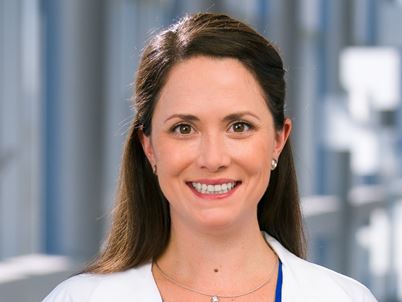
Dr. Ann Marie Navar
@AnnMarieNavar
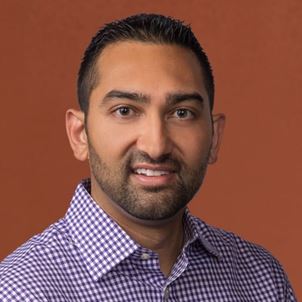
Dr. Rushi Parikh
@RushiParikh11
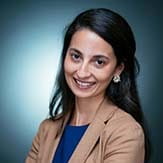
Dr. Nosheen Reza
@noshreza
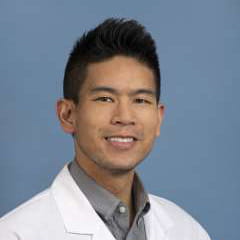
Dr. Jeff Hsu
@JeffHsuMD
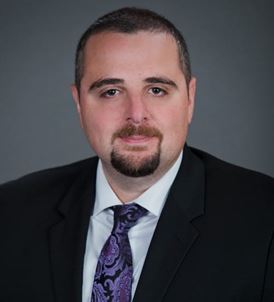
Dr. Ahmad Masri
@MasriAhmadMD
At the AHA Scientific Sessions 2021 FIT Lounge, my colleagues and I on the FIT Sessions Planning Committee had the opportunity to moderate some amazing panels featuring distinguished guests from the AHA. I co-moderated two separate sessions on topics that I find both interesting and very important for FITs. In this article, I’d like to summarize some of the key insights from these sessions in the hopes that it might benefit others. The first panel, “Into the Unknown: Transitioning to Your Next Career Stage” took place on November 15 and started on a high note. After brief introductions, Ann Marie Navar introduced the idea that conflict around choosing the right career path can often mean that there are multiple good options rather than only one correct choice. She also cautioned that it is important to get offers from multiple institutions to understand your worth and negotiate for the job you want. Jeffrey Hsu encouraged us to think about what kind of environments make us feel the most fulfilled. He also advised that keeping and open mind and starting conversations with faculty while in fellowship about the particulars of their chosen career paths can provide invaluable insight. Nosheen Reza agreed that it’s never too early to start talking to people about potential career paths. Her own chosen pathway was largely influenced by experiences and exposures she had during her second year of fellowship. Rushi Parikh cautioned that it is important to make sure you like the bread and butter of a career path since that will comprise most of your time and efforts. When it comes to the job search itself, Ahmad Masri suggested that it is important to evaluate different kinds of job structures and work environments before deciding, even if the decision of where you want to be is already clear. The conversation went on to include practical tips about contract negotiation and easing the transition from fellow to first year attending. All in all, it was an excellent discussion with a lot of useful perspective.
Finding Ikigai: Wellness in Cardiovascular Medicine

Dr. Laxmi Mehta
@DrLaxmiMehta
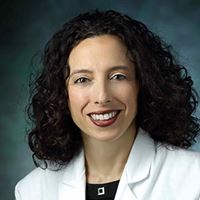
Dr. Erin Michos
@ErinMichos

Dr. Andrew Sauer
@AndrewJSauer
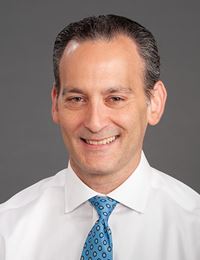
Dr. Michael Shapiro
@DrMichaelShapir
I was also very excited to co-moderate a FIT Lounge session titled, “Finding Ikigai: Wellness in Cardiovascular Medicine”. After meeting our panelists, Laxmi Mehta provided figures from survey data on burnout among physicians. In particular, she shared a 2015 survey which found that 27% of cardiologists and FITs were self-reporting burnout. These figures doubled during the COVID-19 pandemic. As a result, she stated, we must be open to the concept that any of us can burn out as we tend to have less recognition of and compassion for burnout in ourselves. When asked what she thinks can help reduce burnout she listed three key strategies: a more inclusive culture allowing for vulnerability, maintaining human connections, and remembering what it is we enjoy about medicine. Erin Michos added that it is important to “fill your own cup” before filling the cup of others. She advised us to seek out and utilize our “protective bubble”, those trusted friends or family who can be relied upon during difficult circumstances. She also suggested that practicing gratitude and the joy that comes from giving back can both be helpful in preventing burnout. Andrew Sauer drew from his experiences caring for patients at the end-of-life, suggesting that we begin with the end in mind by asking the question: “at the end of my life what would I want to have accomplished?” Ultimately, he advised that one way to accomplish these priorities is to promote habits that enrich your life. Michael Shapiro relayed that success is related to everyone’s happiness and thus, it means something different to everyone. He advised to be honest with yourself about which elements of your future career you believe are going to make you happiest to seek those out as priorities. In the meeting each of the panelists shared personal stories and insights which influenced their understanding of the importance of promoting wellness and utilizing strategies for avoiding burnout. By the end there were several questions, but limited time so we thanked the panelists after a brief Q&A from the audience. Both sessions were of tremendous value, and I hope that others got as much from them as I did. Overall, it was a great success, and I am thankful to the panelists, FIT Lounge planning committee and AHA for putting together a great event.

Sasha Prisco, MD, PhD
Fellow, Cardiovascular Medicine
University of Minnesota
@SashaPrisco
Sasha Prisco is the 2021 recipient of the Cournand and Comroe Award which acknowledges the research and accomplishments of early career investigator members of the Council on Cardiopulmonary, Critical Care, Perioperative and Resuscitation (3CPR) and encourages them to continue their research in biomedical sciences
AHA Fellows in Training Newsletter Editorial Team
Editors in Chief:
Tsion Aberra, MD
Georgetown University/Medstar Washington Hospital Center, Washington DC
Zakaria Almuwaqqat, MD
Emory School of Medicine, Atlanta, GA
Sasha Prisco, MD, PhD
University of Minnesota, Minneapolis, MN
Immediate Past Editors/Advisors:
Aubrey J Grant, MD
Georgetown University/Medstar Washington Hospital Center, Washington DC
Anum Saeed, MD
University of Pittsburgh Medical Center, Pittsburgh, PA
AHA Liaison/Senior Contact:
Eddie Pan
Newsletter Contact: